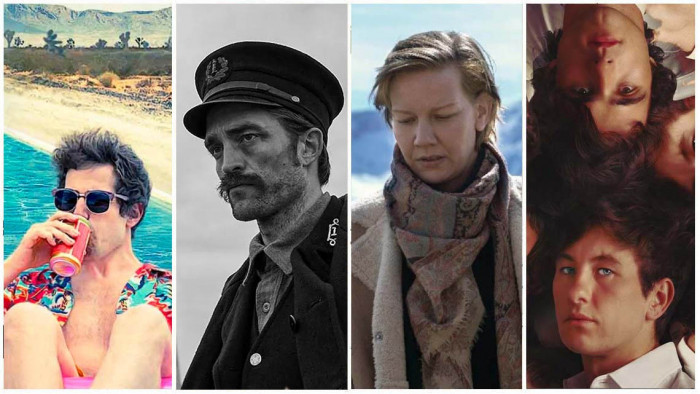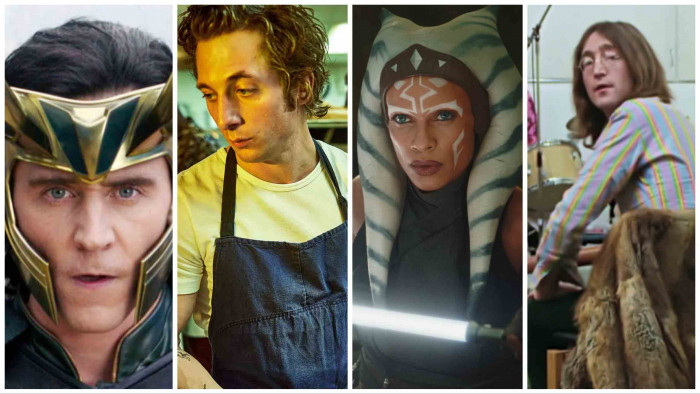20 Things You (Probably) Didn't Know About Haruki Murakami
20 Things You (Probably) Didn't Know About Haruki Murakami


We're a little jealous of Haruki Murakami, truth be known. Not only is he one of the planet's finest authors but he is, at 65, still a marathon-running ironman.
In short, he's incredible.
A private and reluctant celebrity, though, he moves around a lot to maintain a degree of anonymity and not a huge amount is known about him - certainly in best-selling writer terms.
Here's 20 facts we found out all of which have served only to make us admire him more. Particularly number ten...
(Images: Rex)

1. He loves Jazz
His first job was at a record store, much like Toru Watanabe, the narrator of Norwegian Wood. He collects records, specifically jazz and when asked where his favourite place in the world to travel to is, he said: "First would be Boston, Massachusetts, because it’s the most convenient and satisfying city for collecting secondhand jazz records." Murakami owns more than 6000 music records.

2. He won't lend himself to book critiques
You won't find Murakami's quotes on book sleeves. Ever. "I think that my job is to observe people and the world, and not to judge them." He once said. "I always hope to position myself away from so-called conclusions. I would like to leave everything wide open to all the possibilities in the world... We need critiques in this world, for sure, but it’s just not my job.

3. His routine is rigid. And intense.
When he's in writing mode for a novel, he gets up at 4am and works for five to six hours. In the afternoon, he will run for 10km or swim for 1500m (or do both), then read a bit and listen to some music. He goes to bed at 9pm. "I keep to this routine every day without variation." He says "The repetition itself becomes the important thing; it’s a form of mesmerism. I mesmerise myself to reach a deeper state of mind. But to hold to such repetition for so long — six months to a year — requires a good amount of mental and physical strength. In that sense, writing a long novel is like survival training. Physical strength is as necessary as artistic sensitivity."

4. He loves movies. A lot.
Reportedly, during one year at university (he went to Waseda University in Tokyo and studied drama - he met his wife, Yoko there) Murakami watched more than 200 films.

5. Partial to a curry
He prefers his native food to any other cuisine and seeks it out wherever he can, but he does love Indian food, particularly in Boston.

6. Loves cats
In an essay in 1989, he stated that he had more than ten cats over the years, one of which was called “Kirin” (after the Chinese unicorn, not the Japanese beer). He got Kirin from fellow writer and namesake Ryū Murakami, one of only two Japanese authors he tends to enjoy reading.

7. He drafts. A lot.
He does four or five drafts of every novel, spending six months writing the first and seven or eight months rewriting.

8. The first book he read in English?
The first book he read in English was The Name Is Archer, by Ross Macdonald. As a high-school student he fell in love with crime novels. Living in Kobe, which is a port city where foreigners and sailors used to come and sell their paperbacks to the secondhand bookshops he could, despite being poor, just about afford to buy, learn and read English from books.

9. Baseball made him a writer. Sort of.
He can't say exactly why he decided to become a writer. It struck him one day, out of the blue, while watching a baseball game between the Yakult Swallows and the Hiroshima Carp. Dave Hilton, an American, came to bat. In the instant that Hilton hit a double, Murakami suddenly realised that he could write a novel having never had an inclination to be a writer before. He went home and began writing that night. Murakami worked on Hear The Wind Sing for several months in very brief stretches after working days at the jazz bar he owned.

10. He doesn't know how much money he has.
He doesn't know how much money he has. He told The Guardian: "You know, if you are kind of rich, the best thing is that you don't have to think about money. The best thing you can buy with money is freedom, time. I don't know how much I earn a year. I have no idea. I don't know how much I pay in taxes. I don't want to think about tax."

11. Rocks out when he's running
Despite his passion for jazz, when he runs he listens to rock. "I found that the simpler the rhythm, the better for running." He told Runners World "Creedence Clearwater Revival, John Mellencamp or The Beach Boys. There was this one time when I tried a 100km ultramarathon, I was tempted to listen to Mozart's Magic Flute from the beginning to the end, but I gave up on it in the middle of the course. It was exhausting. Since then I found opera not to be a good fit for running."

12. He doesn't know the ending of his own books
This quote is brilliant and intriguing. Speaking to the Paris Review about his whodunnit crime novels he said: "I myself, as I’m writing, don’t know who did it. The readers and I are on the same ground. When I start to write a story, I don’t know the conclusion at all and I don’t know what’s going to happen next. If there is a murder case as the first thing, I don’t know who the killer is. I write the book because I would like to find out. If I know who the killer is, there’s no purpose to writing the story."

13. Salt and paper
He wrote his first book on his kitchen table. It took 10 months.

14. His wife is his reader
His wife, Yoko, is the first person that reads every book he writes. "It’s like Scott Fitzgerald [pictured]," he says "Zelda [Fitzgerald] was always the first reader."

15. He rejected Japanese literature
His father taught Japanese literature at high school. Murakami avoided all Japanese literature as a direct result. He devoured 19th-century European authors - Balzac, Chekhov, Dostoevsky and Dickens (pictured). "But no Japanese literature at all." He told The Telegraph. "If I'd read Japanese literature I would have had to talk about it with my father, and I didn't want that.'

16. He parallels writing to video games
He thinks designing video games is incredibly close to writing fiction. "Sometimes while I’m writing I feel I’m the designer of a video game, and at the same time, a player." He told the Paris Review. "I made up the program, and now I’m in the middle of it; the left hand doesn’t know what the right hand is doing. It’s a kind of detachment. A feeling of a split."

17. He has three translators
He chooses between Alfred Birnbaum, Philip Gabriel and Jay Rubin to translate his novels into English. Well, we say "chooses" but it's more a first come first served sort of a set up. The English version of his books are the most important to him, smaller countries with less widely used languages countries translate from the English. He himself translates English texts into Japanese.

18. His words are read in classical music
On British composer Max Richter's 2006 album Songs from Before, Robert Wyatt (pictured) reads passages from Murakami's novels. Most notably, perhaps, in Flowers For Yulia, which you can hear, here.

19. Underground
His first work of non-fiction, Underground (1998), was a compendium of interviews with victims of the 1995 sarin gas attacks in the Tokyo subway system.

20. His taste in films
We'll finish with some quickfire movie-related stuff. His favourite director is Finnish Aki Kaurismäki (pictured), he likes the movie The Matrix, but doesn't like animated films or Manga movies. So there you go.
Latest
Related Reviews and Shortlists









